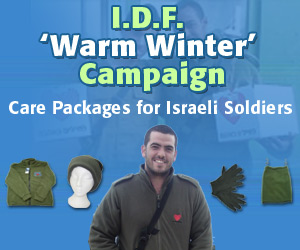Your dedication to fulfilling God’s will, not your own, is the deciding factor when the chips are down.
By Rabbi Ari Enkin, Rabbinic Director, United with Israel
This week’s Torah portion is “Shemot” (Exodus 1:1 – 6:1), which begins the book of Exodus and the stories of enslavement and freedom. The reading opens with a new king on the scene about whom we are told, “[He] did not know Joseph [and all the good he had done for Egypt].”
In fact, there is a dispute among the authorities as to whether it was truly a new king who rose to power or whether it was the same king who turned evil and decided to enslave the Jews.
In any event, in addition to wanting to enslave the Jews, Pharaoh also wanted to kill them. Indeed, Pharaoh might have been the first anti-Semite who sought to exterminate the Jews. As it says, “And the king of Egypt said to the Hebrew midwives, one who’s name was Shifra and the other whose name was Puah, ‘When you assist the Hebrew women at childbirth and you see that a boy was delivered, you are to kill him, and if it is a girl, she shall live.’” (Ex. 1:15-16)
Who were these previously unknown figures “Shifra” and “Puah”?
Our sages tell us that Shifra and Puah were actually Yocheved, Moses’ mother, and her daughter Miriam, Moses’ sister.
They were nicknamed Shifra and Puah based on the way they acted. Yocheved was called Shifra because she “beautified” children at birth (“Shifra” is a play on the Hebrew word for “beautify”), and Miriam was called Puah because she cooed to the babies when they cried (“Puah” is a play on the Hebrew word for “coo”). They loved their jobs and did their best to help raise the children during these very difficult times.
As mentioned, Pharaoh told them that they must kill the baby boys. However, the Torah tells us that they did not do as they were told because “they feared God,” and therefore they kept the boys alive.
It is noted that the Torah introduces Shifra and Puah as women who loved children. Therefore, why is it that the Torah says that the reason they refused to listen to Pharaoh is because “they feared G-d?” Maybe it was simply because they loved the children?!
The answer is that ultimately we make the hardest decisions based on our religious beliefs, and by extension, our fear of Heaven. Love, ethics, morals, and personality traits only take a person so far.
Perhaps under less dire circumstances, their love would have been enough to arouse them to save the children. But in this case their lives were threatened and literally on the line for taking this action.
In such life-and-death situations, only true dedication to Torah principles and true fear of Heaven motivate people to do the right thing.
This is also true in less serious situations. Take for example, people who eat nuts, fruits or candies from open containers at the grocery store.
When some shoppers know that nobody is watching, they pop these treats into their mouths from the bins without paying for them. But those of us who know that God is always watching never eat those nuts and candies without first getting them “weighed and paid.”
It all comes down to our devotion to Torah principles and our fear of Heaven. That’s how to best judge a person!
For more insights by Rabbi Enkin on this week’s Torah portion, click on the links below:
https://unitedwithisrael.org/living-torah-dont-be-afraid-to-stand-up-for-whats-right/
https://unitedwithisrael.org/living-torah-in-ancient-egypt-blood-was-thicker-than-water/
https://unitedwithisrael.org/living-torah-raising-children-to-be-confident/
https://unitedwithisrael.org/living-torah-the-who-am-i-attitude/
https://unitedwithisrael.org/living-torah-extending-appreciation-whenever-possible/
https://unitedwithisrael.org/living-torah-we-can-all-be-like-moses/
https://unitedwithisrael.org/learning-from-the-burning-bush/
https://unitedwithisrael.org/shemot/
Send 'Warm Winter' Care Packages to Israeli Soldiers - They are Cold!
We are honored to thank the young men and women of the IDF who risk their lives every day to defend the citizens of Israel.
Join us in sending winter care packages and personal notes of support to Israeli soldiers who are out in the cold all day.
Warm up a soldier's heart with essential winter wear including fleece jackets. Keep an entire unit warm by ordering 10 packages... The soldiers truly appreciate your love and concern!

